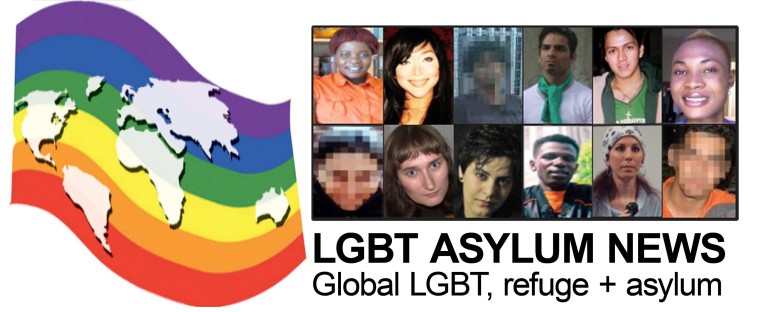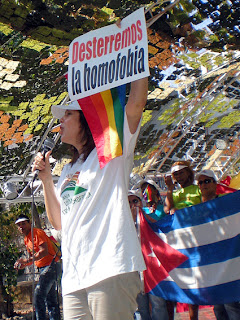 |
| No lesbians here |
The controversy over the banning of lesbians from Nigeria's women's football team is dominating coverage of their bid for World Cup in Germany.
Today they face the German World Champions and are expected to lose and hence be out of the Cup.
The controversy began with a report in a Nigerian newspaper which was subsequently covered by the New York Times. In the report Nigeria Coach Eucharia Uche, the former NFF technical assistant Sir James Peters, and the Nigeria Football Federation (NFF)'s Chief Media Officer, Ademola Olajire, had all bragged to a Nigerian newspaper about driving lesbians out of the women's team.
In Germany, Uche has said that she cannot understand the fuss over her remarks. "What has this got to do with the World Cup," she told the German broadcaster ARD.
After Nigeria lost their opening game 1-0 to France on Sunday, Uche repeated her remarks that she had acted to remove any lesbians from the team, known as the Super Falcons.
Then on Wednesday she claimed it was a misunderstanding, saying "I'm sorry that such a situation has arisen. I've never made such statements."
World football body FIFA has been the subject of a campaign on the issue of the Nigerian lesbian ban. allout.org which is coordinating the campaign today reported that 35,000 petitions had gone to the organisation.
The campaign is asking FIFA president Joseph 'Seph' Blatter to:
"Play by FIFAs own rules, and investigate the harassment and termination of players “suspected” of being gay. Blatter needs to condemn this blatant discrimination, as well as make moves to include sexual orientation and gender identity into FIFA’s anti-discrimination policy."
Speaking to German television channel ARD, Tatjana Haenni, FIFA's head of women's competitions, said that "FIFA is against all forms of discrimination." Haenni said FIFA will be talking to Uche about her comments and reminding the coach of the governing bodies statutes.
After initially refusing comment the German Football Federation issued the following statement yesterday:
"Our association resolutely combats any kind of discrimination. This also includes the fight against homophobia. The current issue around the coach of the Nigerian national team certainly requires further discussion. But this can only be done by the tournament host, which is FIFA."
Nigerian exiled activist Rev. Rowland Jide Maccauley, who has supported the campaign, warned, however, in comments to the Associated Press, that homosexuality was perceived in Nigeria as 'western decadence' and therefore it was important that African gay voices are heard. Any 'knee-jerk outcry from the West' was not always helpful, he said.
"We tell our European friends:.... Support us, but go with us on the small steps. Recognise our concerns Discuss with us before you act on our behalf"
Discussion in German media about the Nigeria scandal has also focused on how the World Champion German team includes a number of lesbian and bisexual women whose presence arouses little interest. However six years ago they became the focus of tabloid interest after a 'love triangle' between players Inka Grings, Linda Bresonik and coach Holger Fach was exposed.











































 Join our page
Join our page

